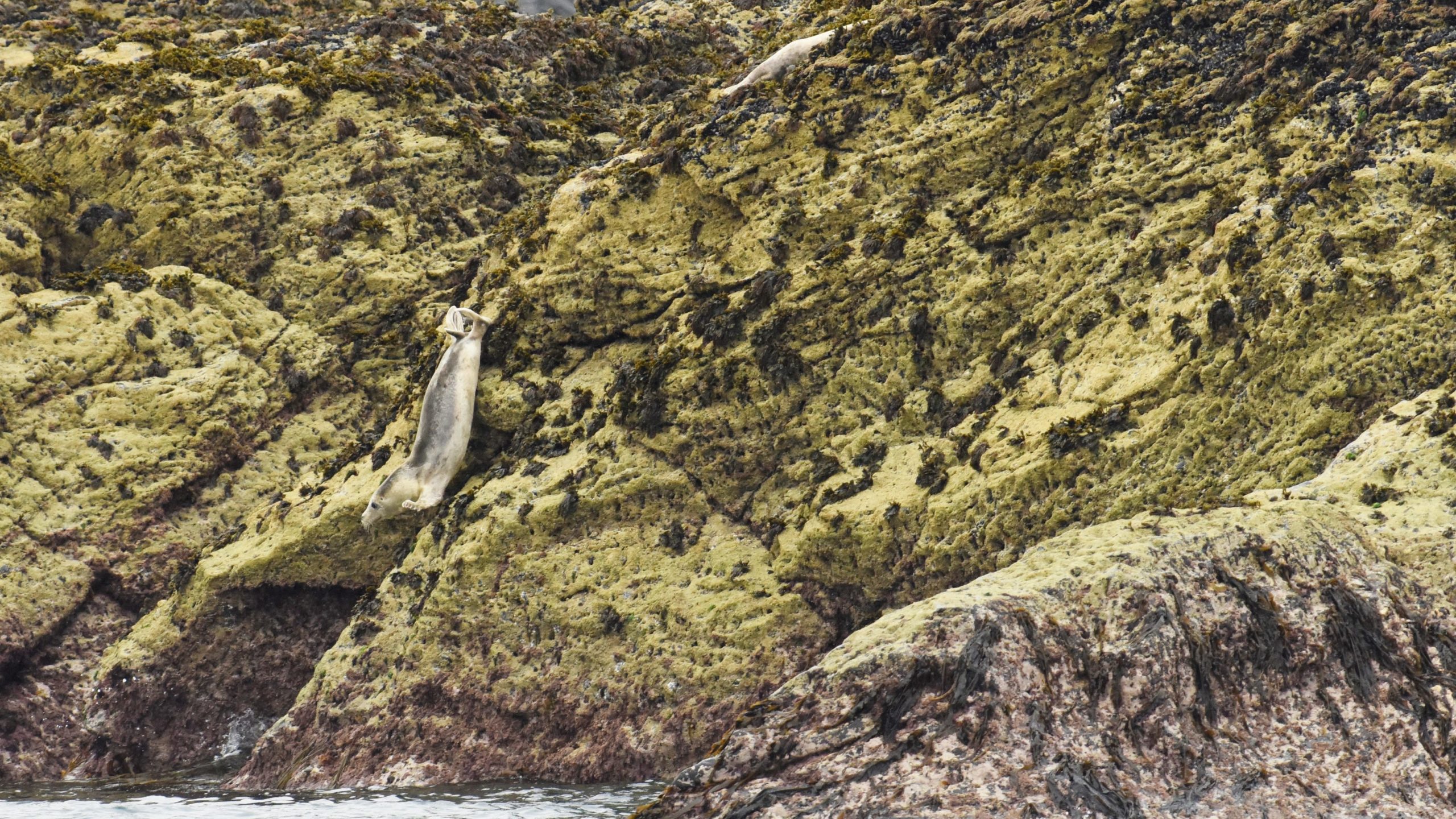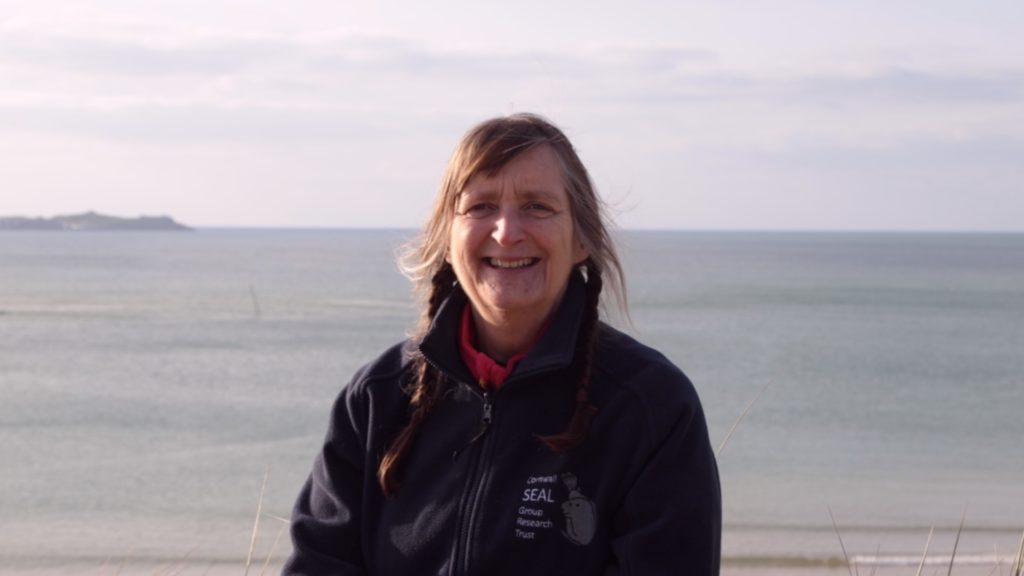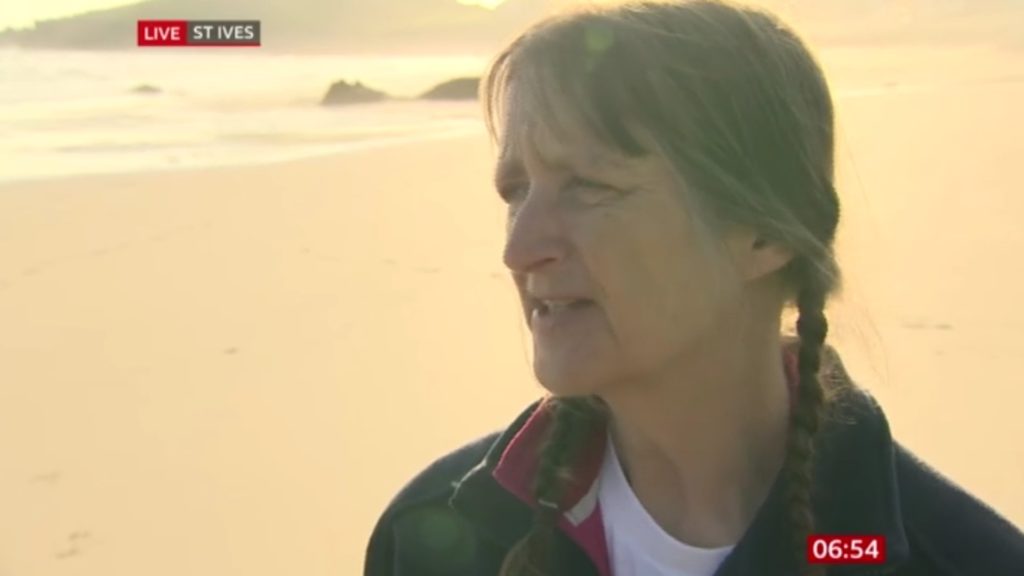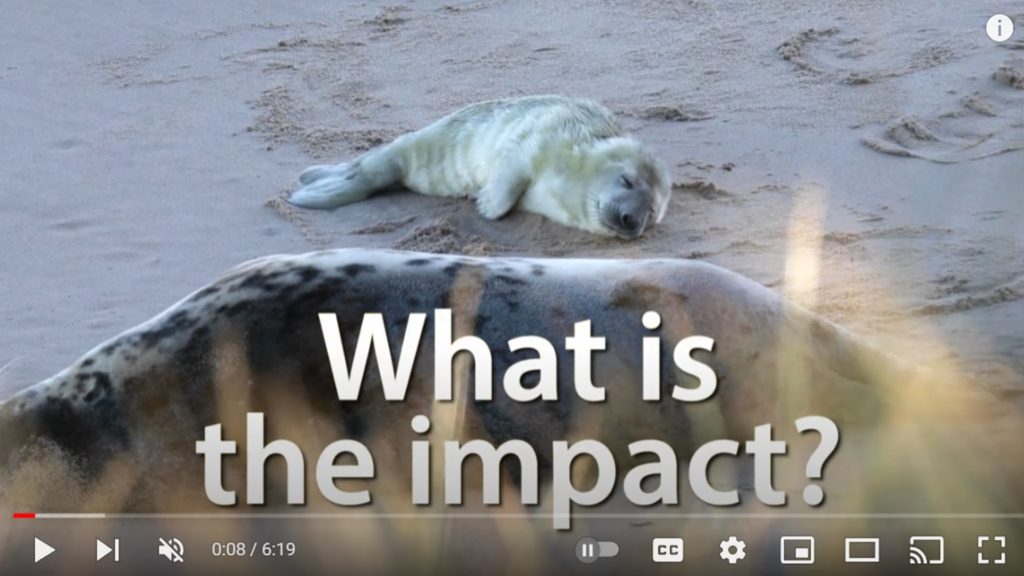Defra MCW Code
New Marine and Coastal Wildlife Code
We are all super excited that Defra has launched a brand new Marine and Coastal Wildlife Code. This is something we have been working on with Defra’s wonderful Lara Turtle (Seal’s policy advisor) and team for over 18 months.
Why do seals need this Marine and Coastal Wildlife Code?
Our Seal Research Trust data that shows serious seal disturbance has increased significantly since 2013 and is widespread around the SW. Seals are disturbed 68% of the time when people are present. This isn’t great for seals or our views of them.

Seals at some sites have different user groups visiting them every few minutes in peak season, suggesting seals are suffering from chronic levels of disturbance. This leads to increased vigilance levels, keeping seals awake with faster heart and breathing rates and so using more energy – even if they do stay put on the rocks.
We would not feel great after being woken up every 5.5 minutes when we’ve been sleeping, neither do seals.
Disturbance is easy to solve
Out of all the impacts we are having on seals, disturbance is one of the easiest issues for us to solve quickly.
We and our pets need to reduce our direct disturbance of coastal wildlife by being slow, quiet, low profile and distant (100m+ away).
We need to be alert to the signs that we have been spotted by seals and when we are making them uncomfortable. The first sign is a seal wakes up and looks at you, it will then move seawards and finally disappear into the sea risking injury as it goes.
Disturbance is always a waste of energy, often results in injury and can be fatal. DEFRAs first national code, the new Marine and Coastal Wildlife Code is great, as it helps us all to understand how to enjoy the coast. We get the best, privileged views of natural wildlife behaviour without impact when wildlife is unaware of our presence. WIN for us and WIN for wildlife.
We all need to point the finger at ourselves and ask ‘Did I do the right thing and stay 100m+ away and out of sight?’ If the answer is always yes, then the problem goes away tomorrow.
Media Coverage of the new Marine and Coastal Wildlife Code
As partners working to help develop this Marine and Wildlife Coastal Code, Seal Research Trust’s Director Sue Sayer MBE was invited to participate in Defra’s publicity by being filmed talking about the code for their social media campaign

Sue also did interviews on the national BBC Breakfast News with Dan Jarvis from British Divers Marine Life Rescue as well as featuring on ITV Westcountry and being interviewed on BBC Radio Cornwall.

In their press release Defra said ‘Visitors can disturb wildlife by: approaching animals to take photos; crowding or circling them; making noise; losing control of their dog; or damaging and changing habitats.’
Marine Minister Lord Benyon said:
‘Ensuring everyone has access to nature is a priority for this government – but is it absolutely vital that people enjoy nature responsibly.
The Marine and Coastal Wildlife Code will enable everyone to make the most of our treasured outdoor places whilst protecting the very species and habitats that make our coastline so special.’
Sue Sayer, from Cornwall Seal Group Research Trust, said:
‘Seals need space to rest, digest, moult and pup. Yet findings from the Seal Research Trust revealed seals are routinely or frequently disturbed by human activity, causing them to use up vital energy and meaning some seals are sadly unable to survive.
Our GIVE SEALS SPACE campaign is already raising awareness and we are delighted to welcome the launch of the Marine and Coastal Wildlife Code which will provide a single code of best practice to help everyone understand what they can do to help protect valuable marine wildlife as we all enjoy our staggering coastal habitat.’
Kirsten Carter, Marine Principal Policy Officer at the RSPB, said:
‘As well as being fantastic places to visit and have fun, our coastline and beaches are home to amazing marine wildlife and globally important seabird populations. Sadly, many species are under huge pressure, including from the impacts of disturbance as visitor numbers increase and disease such as bird flu.
Everyone has a part to play in protecting nature, and England’s first Marine and Coastal Wildlife Code shows how we can all enjoy our time at the coast while helping to safeguard wildlife at the same time.’
Amanda Craig, director for Connecting People with Nature at Natural England, said:
‘The benefits of spending time in nature cannot be overstated and we want to see people of all ages and backgrounds out and about enjoying our magnificent coastline.
To make sure everyone can continue to reap the benefits, it is absolutely vital we all play our part in protecting marine wildlife and habitats, and the Marine and Coastal Wildlife Code will help equip people with the knowledge to do just that.’
Dr Carla Boreham, Director of Campaigns for Whale and Dolphin Conservation, said:
‘Whales and dolphins are at significant and increasing risk of harm from the impact of human disturbance. It’s important for people to understand and follow the new code so that marine mammals aren’t injured or distressed when paddleboards, boats or other vessels are around.
The Marine and Coastal Wildlife Code builds on the existing Countryside Code, which provides helpful advice and guidance for an enjoyable and safe trip to the outdoors.’
We are hugely grateful to Lara Turtle and the whole Defra Team for realising the need for this kind of marine wildlife code and for making such a great job of seeing it right through to public release. Rest assured you have all created a great legacy for marine life around our coast. We all appreciate this is the first step, getting the wording agreed, now it is up to all of us to raise awareness about the code, by telling everyone about it and creating some wonderful resources to communicate it widely.
We work so hard to help seals. Can you help by sparing a few pounds (or whatever you can afford right now) to support our marine conservation work with seals?
Did you know? Climate change is also adding to seal disturbance
In 2022, hammering rain and intense hail storms, most likely as a result of climate change, are adding to these already high levels of disturbance flushing huge numbers into the sea each time. Extreme weather induced increased coastal erosion means even rockfalls are adding to our already high levels of disturbance and sometimes these are fatal. To learn more about the shocking impacts Climate Change is having on our native seals, please watch our Sea Change: Seals film.

